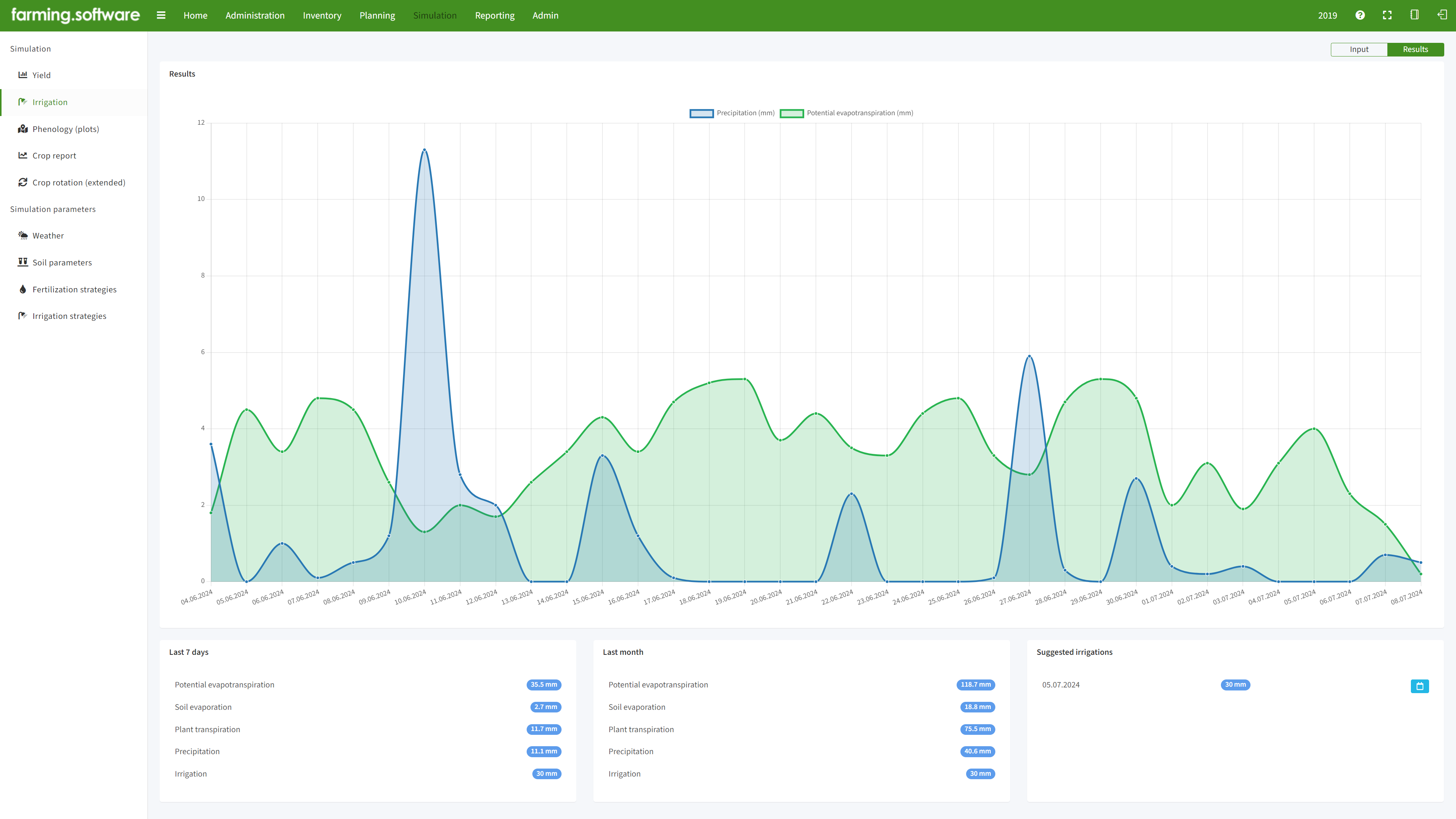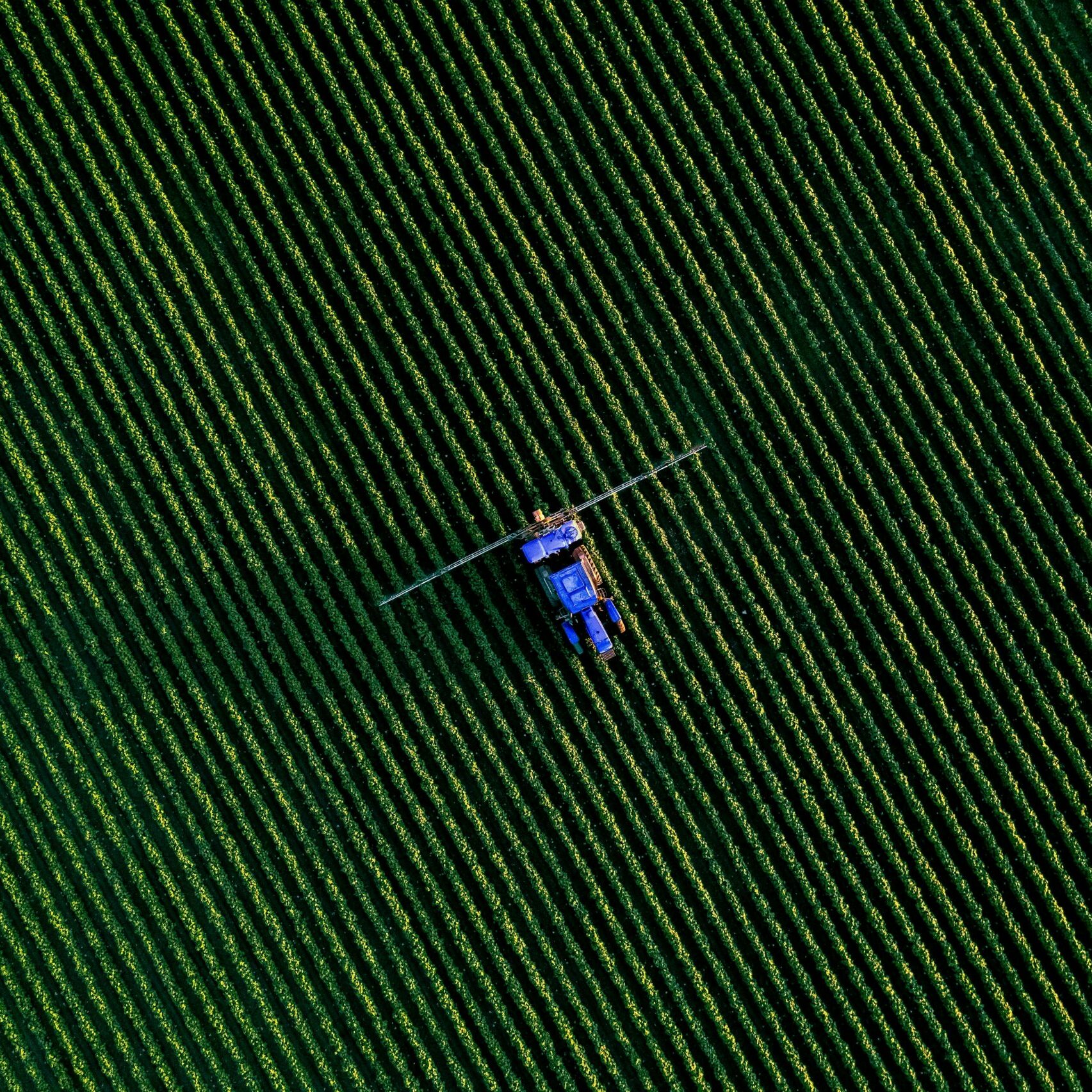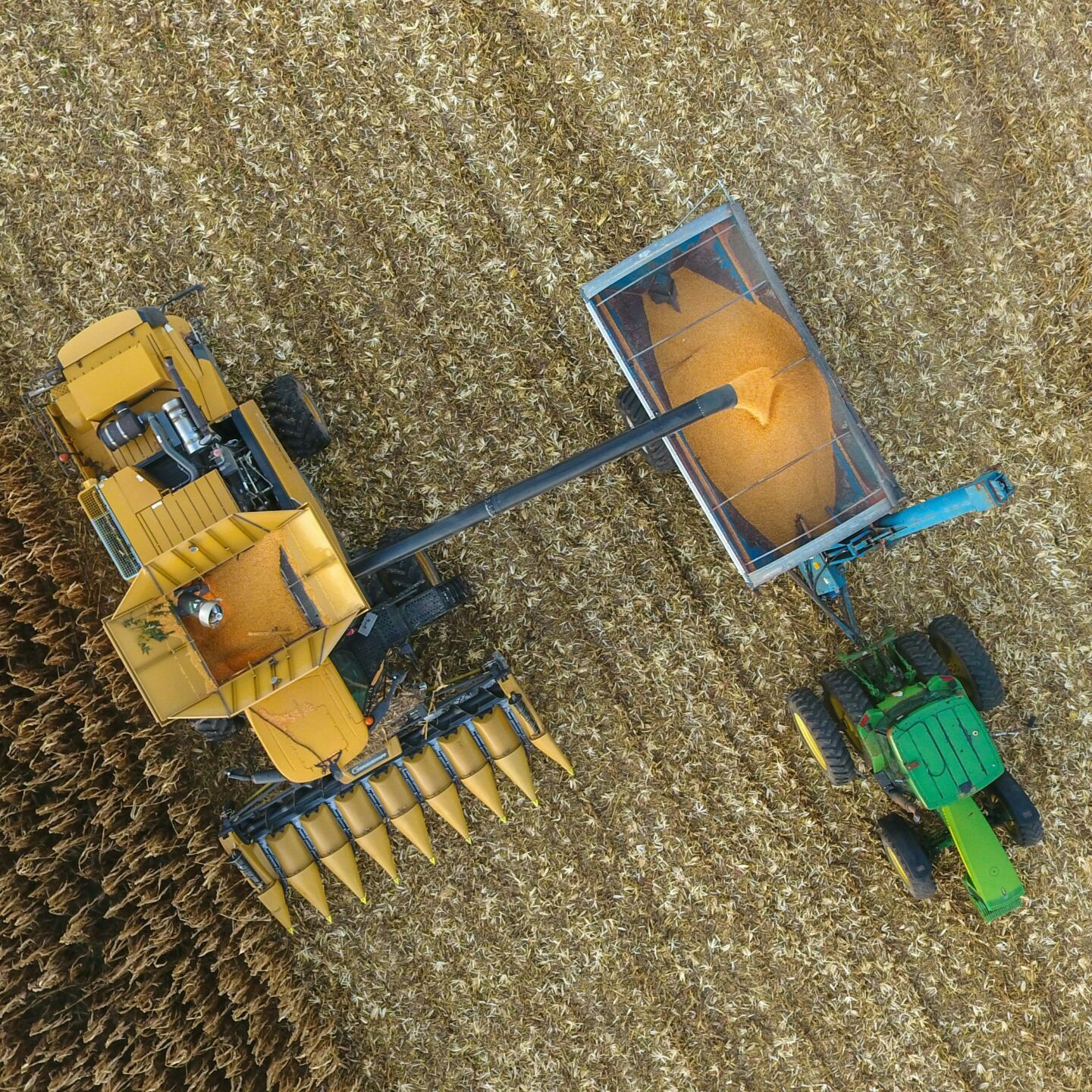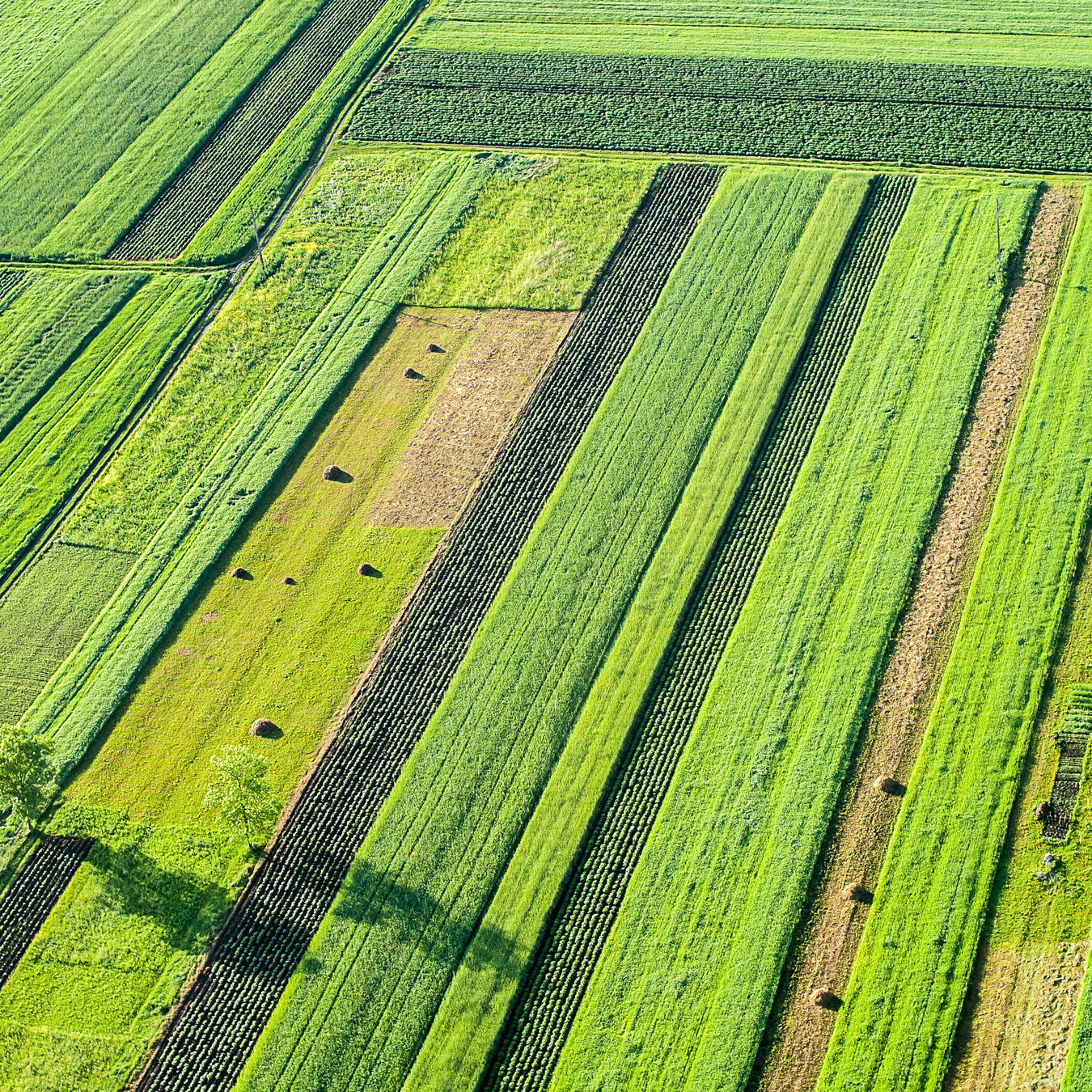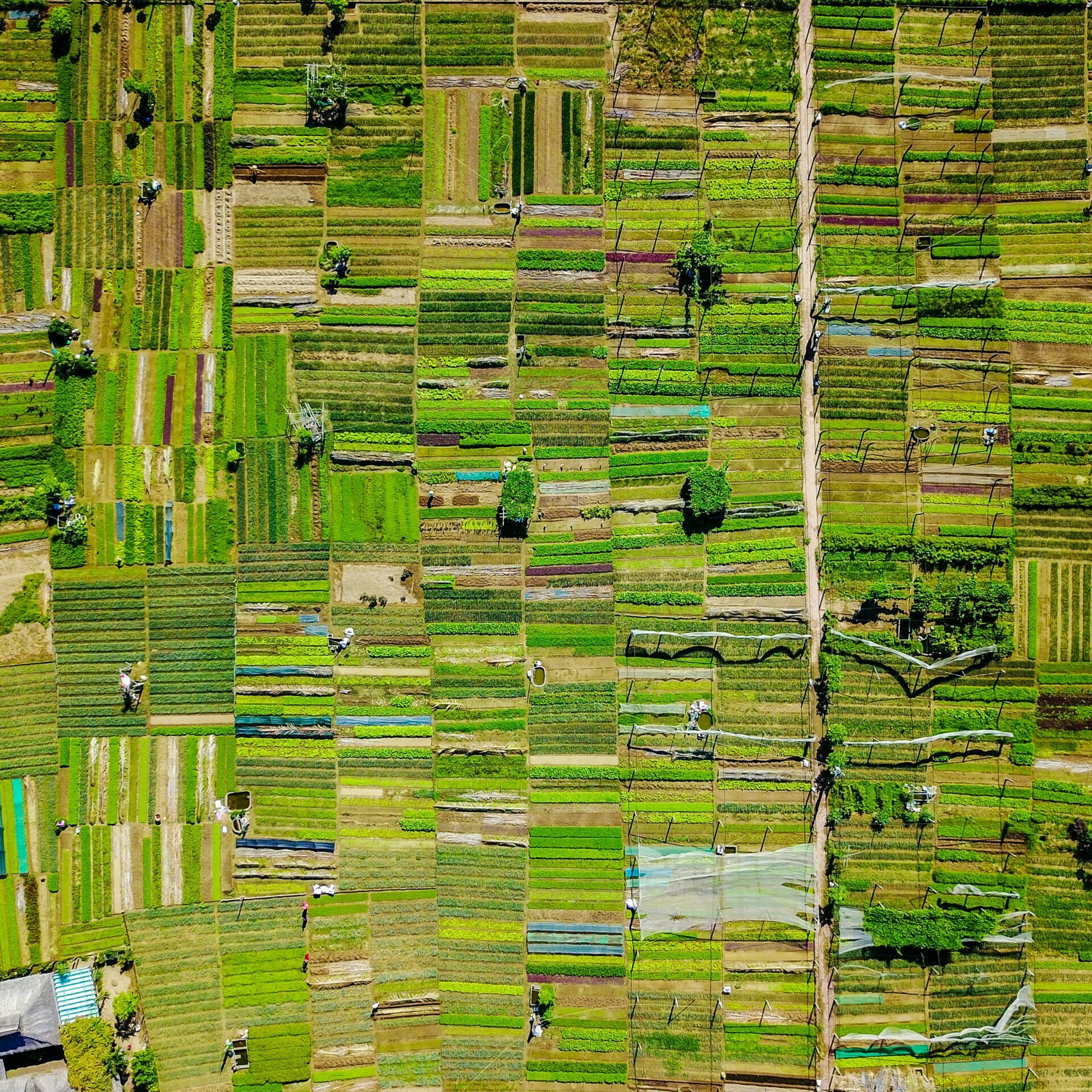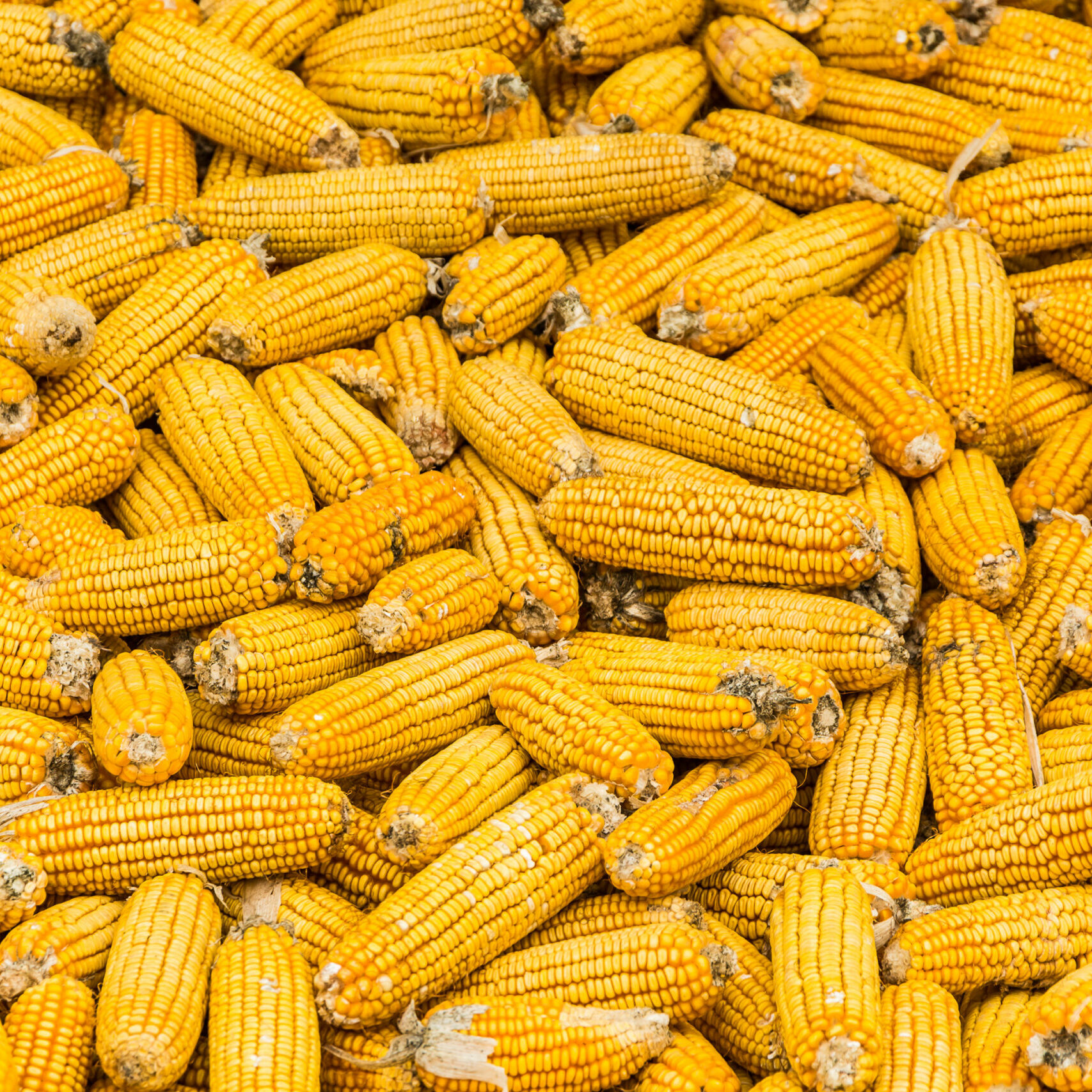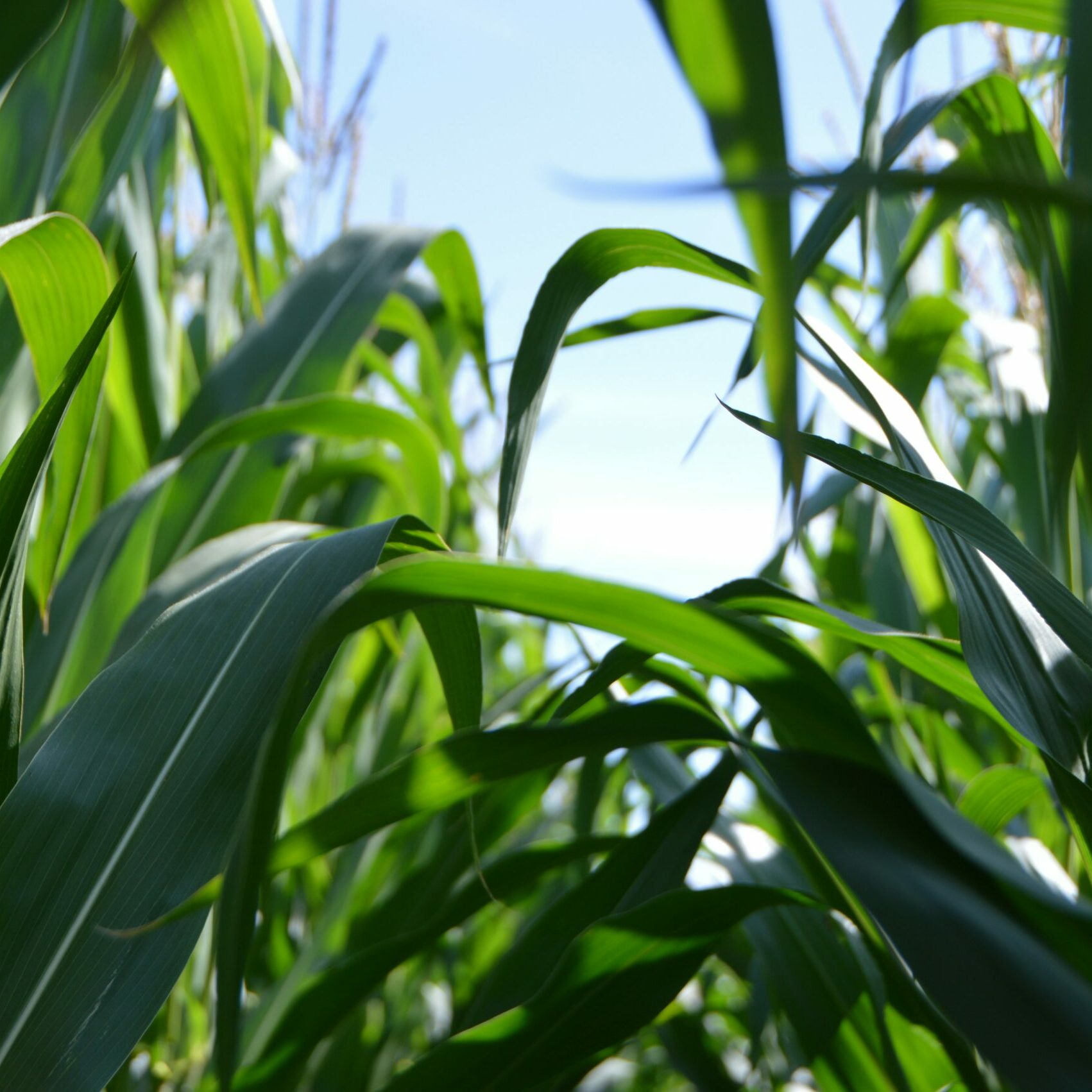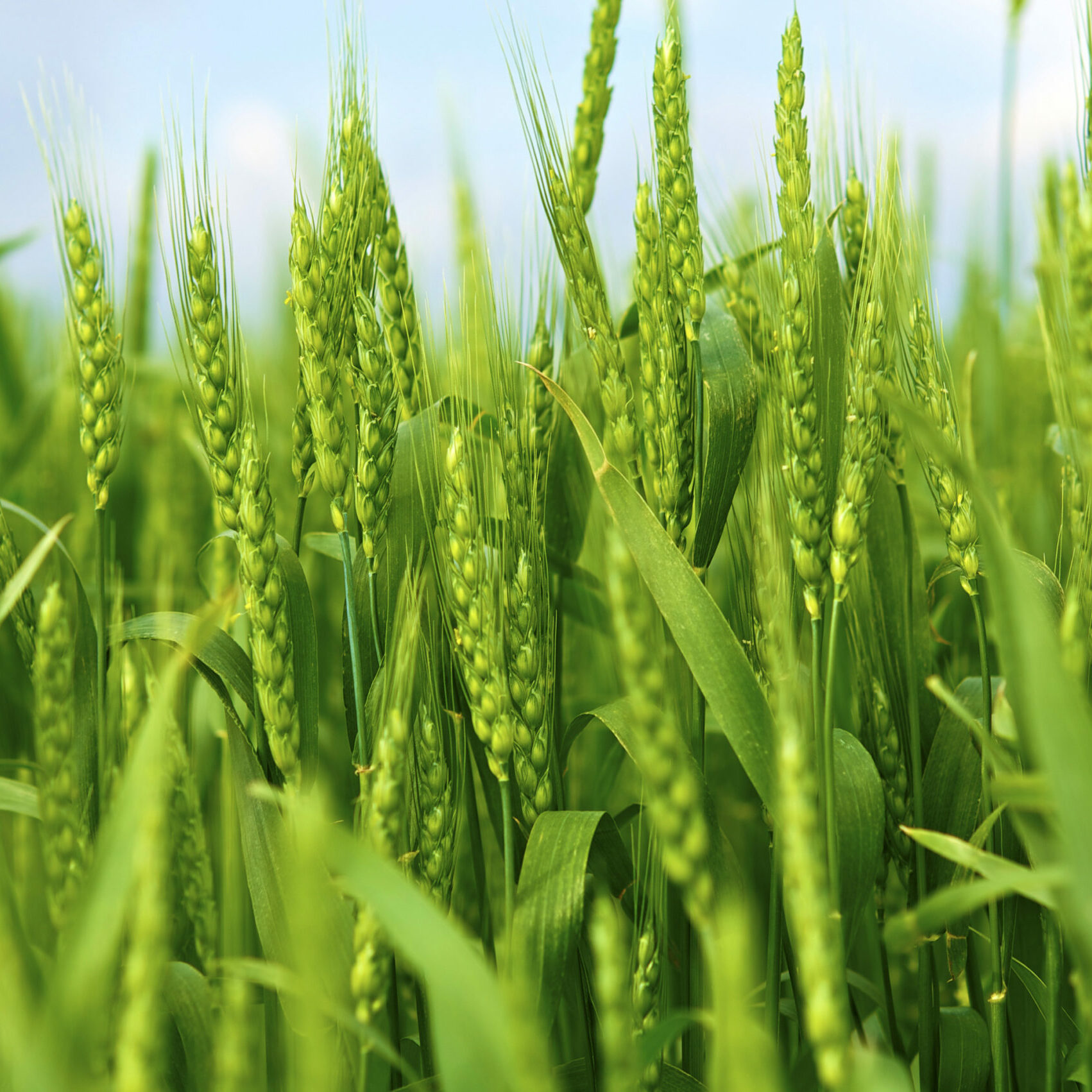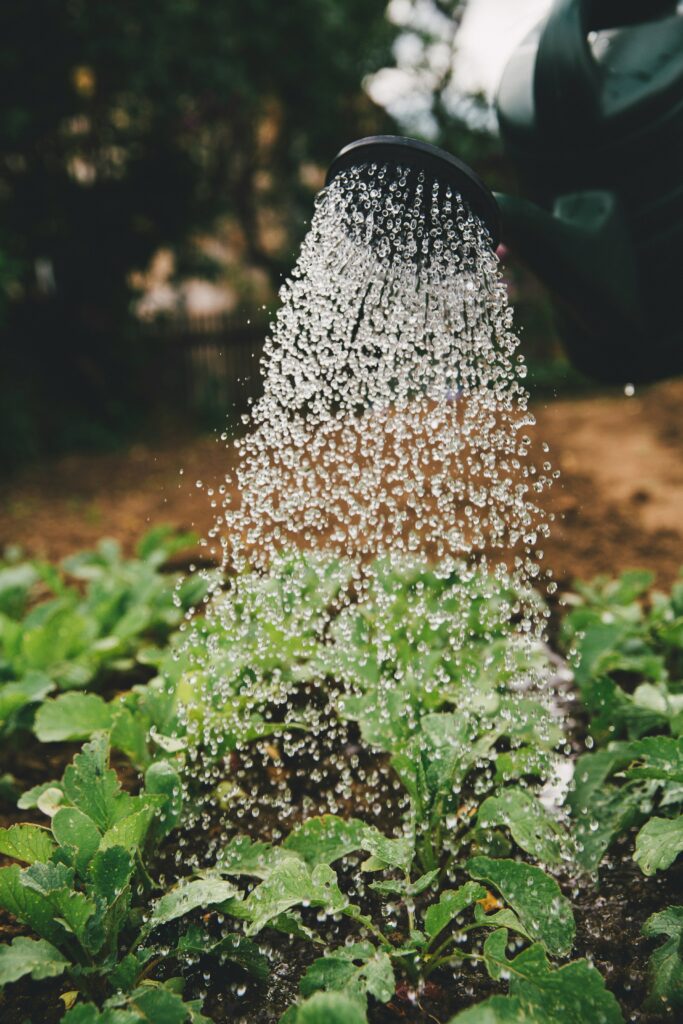
Maximizing Water Efficiency:
The Importance of Irrigation Planning
farming.software’s irrigation monitoring and planning module is designed to transform irrigation planning in agriculture. The module empowers farmers with data-driven decision making, leading to optimized water use and improved crop health..
Water scarcity is a pressing challenge for modern agriculture. Irrigation, while crucial for crop production, can be a significant water consumer. This is where irrigation planning steps in, offering a strategic approach to water use that unlocks a multitude of benefits for agricultural operations.
- Enhanced Water Use Efficiency: We aim to minimize water waste by meticulously planning irrigation schedules based on crop needs and real-time conditions. This translates to significant water conservation efforts, promoting sustainability and responsible resource management.
- Optimized Crop Yields: Precise irrigation ensures crops receive the ideal amount of water at each growth stage. This promotes healthy plant growth, leading to potentially increased yields and improved crop quality.
- Reduced Production Costs: Water conservation through irrigation planning translates directly to lower water bills for farmers. Additionally, optimized water use can lead to a reduction in energy consumption for pumping, further reducing operational costs.
- Improved Soil Health: Over-irrigation can contribute to soil erosion and salinization. Irrigation planning helps prevent these issues. It ensures only the necessary amount of water is applied, promoting healthy soil conditions for long-term agricultural productivity.
- Decision-Making Support: Irrigation planning practices encourage data-driven decision-making. By analyzing past irrigation data and incorporating real-time weather forecasts, farmers can make informed choices that optimize water use and crop health.
This translates to increased water use efficiency, improved crop yield, and a more sustainable agricultural approach.
- Data Integration and Analysis: The module seamlessly integrates with various data sources, including weather stations, soil moisture sensors, and historical field data. Advanced algorithms analyze this data to gain insights into crop water needs and field conditions.
- Smart Irrigation Scheduling: Leveraging the integrated data, the module generates customized irrigation schedules. These schedules consider factors like crop type, evapotranspiration rates, and real-time weather conditions, ensuring water is applied efficiently and at the optimal time.
- Spatial Optimization and Zone Management: The module can account for field heterogeneity by incorporating data on soil types and drainage patterns. This enables the creation of zone-specific irrigation plans that address the varying water requirements of different areas within a field.
- Comprehensive Reporting and Visualization: Users can access intuitive reports and visualizations generated by the module. This allows for monitoring water usage, analyzing irrigation effectiveness, and making informed adjustments to optimize water management strategies.

